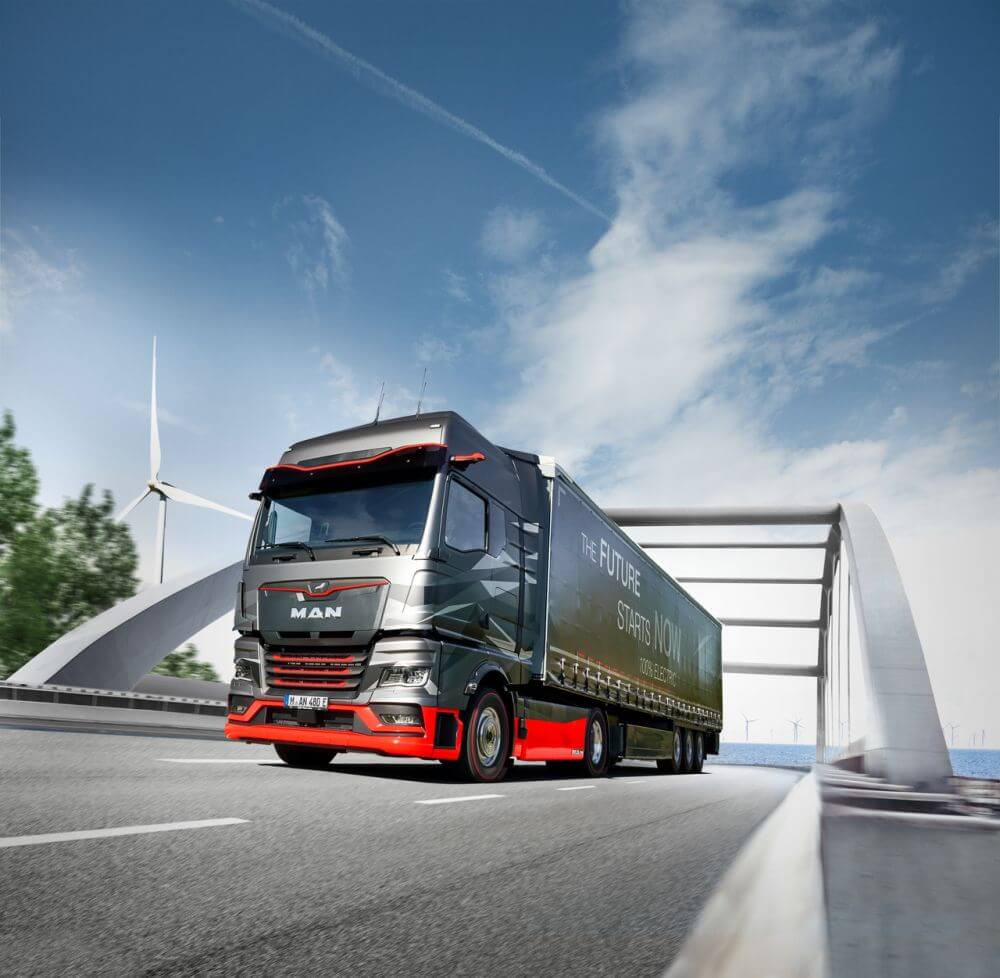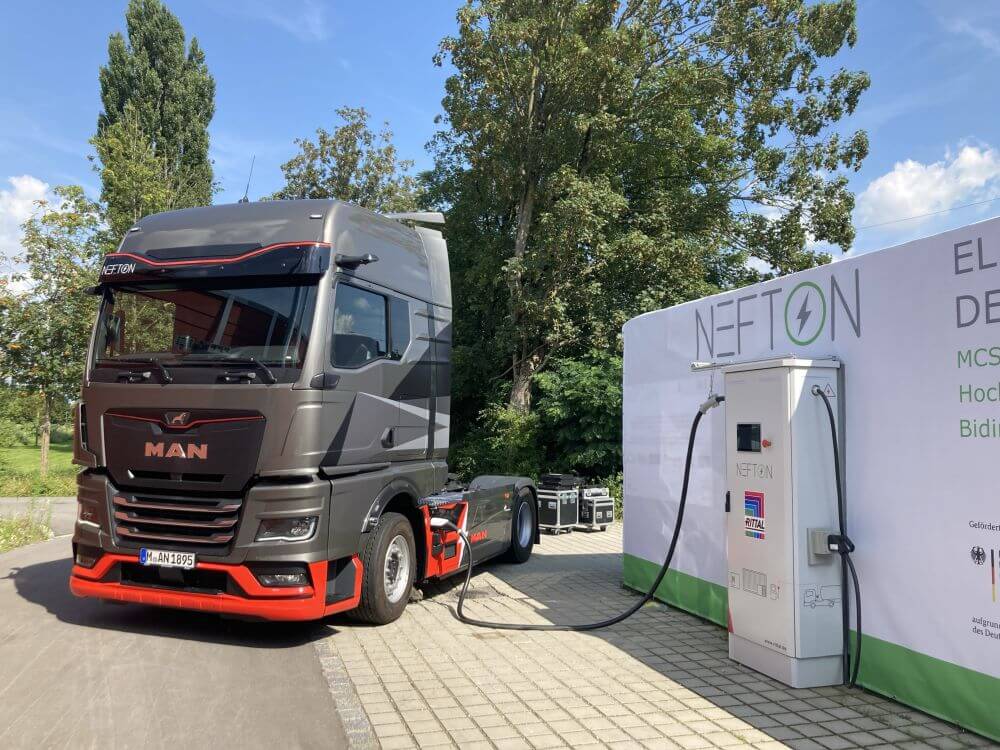| Duration: | 01/2022 - 12/2025 |
| Contracting Authority/ Sponsors: |
Bundesministerium für Wirtschaft und Klimaschutz (BMWK) |
| Project Partners: | Technische Universität (TUM), MAN Truck & Bus SE (MAN), Technische Hochschule (THD), PRETTL Electronics Automotive GmbH, Forschungsstelle für Energiewirtschaft e.V. (FfE), AVL Software and Functions GmbH (AVL SFR) |
| Website: | NEFTON |
| Project Focus: |
NEFTON – Commercial Vehicle Electrification for Transport Sector-Optimized Grid Connection


Road freight transport accounts for 35% of national greenhouse gas emissions. The expansion of the charging infrastructure plays a decisive role in the electrification of the transport sector in order to ensure the acceptance and suitability of fully electric vehicles for everyday use. While the provision of charging capacities of 11 kW for a normal charging process and 120-400 kW for a fast charging process in the passenger car sector are sufficient, the fast and safe provision of electrical energy for commercial vehicles poses a particular challenge for the energy system and the connected charging infrastructure due to the required amount of energy and charging time. The requirements for such megawatt charging systems (MCS) are largely determined by the user's requirements profile and the resulting vehicle concept.
The NEFTON project is developing an MCS for (ultra) fast charging for battery-powered commercial vehicles. This includes the development of a highly efficient, bidirectional charging station in the megawatt range and a vehicle prototype that optimally meets both the technical and customer-specific requirements. The aim of this project is the user-specific, cost-optimized design of a sustainable, electric commercial vehicle concept and its drive and charging system. To this end, data is to be collected and converted into user and requirement profiles. Simulation models for vehicle and drive design will then be created so that concept variants can be analyzed and evaluated. In addition to assessing the technical feasibility, the systems will be evaluated in terms of efficiency and costs. Sustainability criteria also play a role, so that further economic (e.g. macroeconomic), ecological and social aspects are also taken into account.
The newly emerging technology of battery-powered trucks poses not only system-related challenges, but also technical testing issues. In many cases, the problem lies in the basic availability of the high connected load. The MCS standard here is 3.6 MW. In addition, the appropriate measurement technology is also required in order to be able to record the currents in particular in a highly dynamic manner. Due to the high short-circuit power, especially in conjunction with battery systems, appropriate structural equipment is also required. Due to the risk of electric arcs, pressure waves and splinters, testing must be carried out remotely via protected rooms. Fraunhofer ISE has over 40 MVA connected load at various low- and medium-voltage test bays. The necessary measurement technology and structural infrastructure are also available to carry out risky tests safely. The aim is to build on this infrastructure to create a test field for the future requirements of the MCS standard. The NEFTON project will conclude with comprehensive testing of the technology and evaluation of its potential. The prototypes of the charging station and the vehicle offer the opportunity to consider megawatt charging for commercial vehicles with a great depth of detail and a holistic perspective.